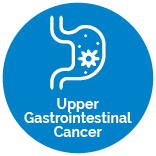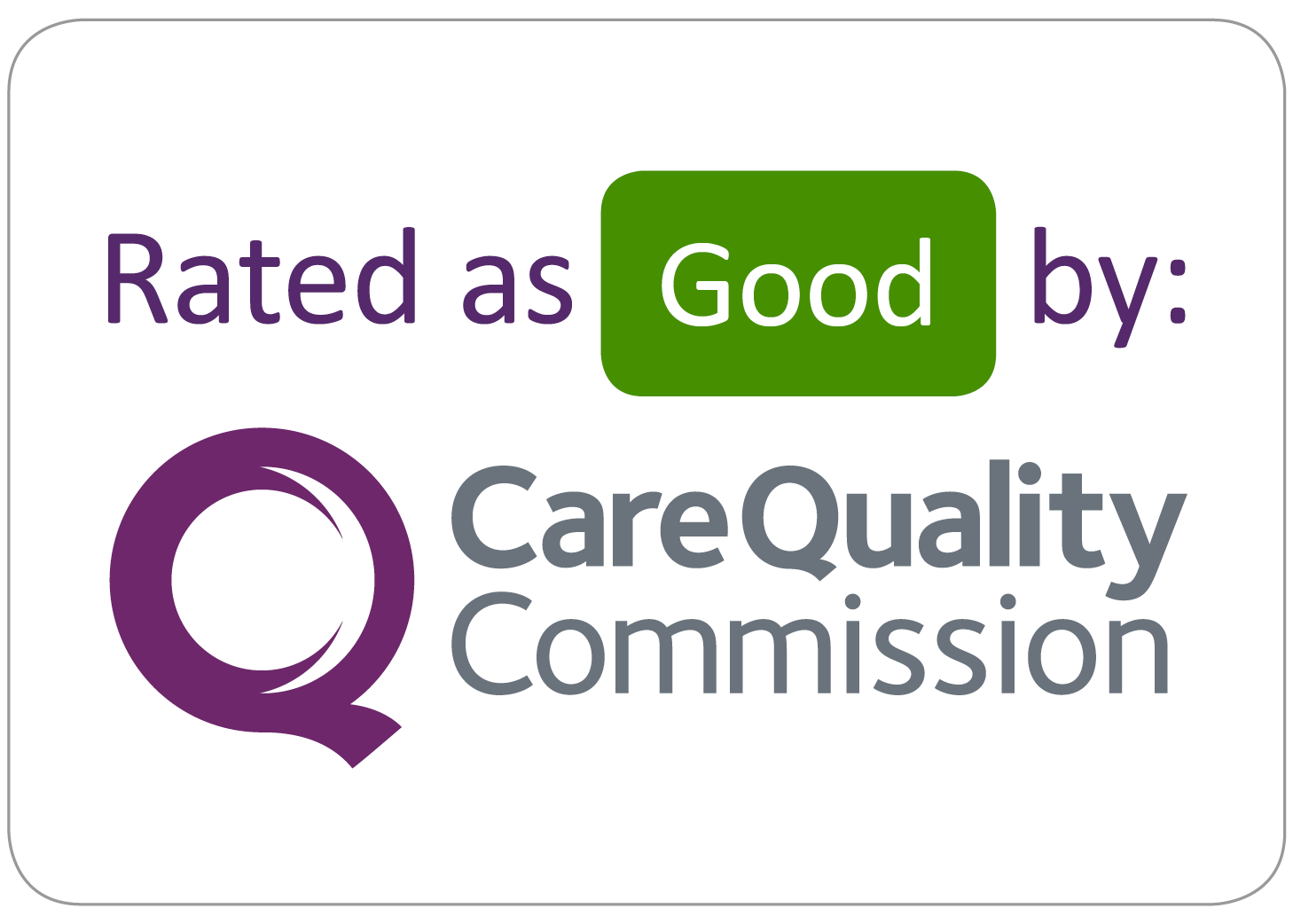Upper Gastrointestinal (GI) Cancer Services

The Upper GI Cancer Team consists of Consultant Surgeons, Gastroenterologists, Oncologists, Radiologists, Pathologists, Clinical Nurse Specialists and Allied Health Professionals with specialist expertise and knowledge of Upper GI cancers.
The UGI team supports and cares for patients and families who are diagnosed with an Upper GI cancer.
Upper gastrointestinal cancers include:
- Oesophageal cancer
- Stomach cancer
- Biliary system cancers:- Cholangiocarcinoma.
- Primary Liver cancer
- Pancreatic cancer
The Upper GI team specialise in diagnosing, treating, and caring for people with cancers of the upper GI tract. The team also care for some patients with premalignant conditions such as High Grade Dysphagia HGD.
Referral
You may have been referred by your GP to our Upper GI Service as your GP feels your symptoms need further investigations. Dependent on your symptoms will determine what happens next. For some patients they may go straight to tests such as an endoscopy (see below for further details). For other patients they may get an appointment with one of our team. This could be a face to face appointment or telephone appointment.
At this appointment certain investigations maybe suggested to help with your diagnosis.
The management of Upper GI cancers depends on the stage of disease and patient fitness.
The investigations and subsequent treatments can at first appear quite complex and daunting. From the point of referral, all patients are seen promptly by a member of the specialist team and each individual case will be presented and discussed within our Multi-disciplinary Team (MDT) meetings. Patients will be guided through the relevant tests and investigations and will be actively involved in decisions regarding their care.
What tests I might need?
The tests that are often needed to investigate the Upper Gastro-intestinal tract are listed and described below please expand for more information, however not everyone will need all these tests.
Most tests are performed at Huddersfield or Halifax unless stated otherwise.
Blood tests
It is sometimes necessary to take some additional blood tests.
Oesophago-gastro-duodenoscopy (OGD)
Oesophago-gastro-duodenoscopy (OGD): This is an endoscopy procedure that looks inside the oesophagus (gullet), the stomach and the first part of the bowel called the duodenum. It involves a thin flexible telescope with a camera on the end that is inserted via your nose or mouth and allows us to have an in-depth look and take any biopsies if you need them. You can have a throat spray local anaesthetic or a sedative injection for this procedure. The procedure is carried out in the Endoscopy Department and they will give you the full instructions for this test when they book your appointment.
Ultrasound scan
An ultrasound scan is a painless test that uses sound waves to create images of the organs within your body. It is similar to the test that pregnant women have when they are expecting a baby.
CT
A CT (computed tomography) scanner is a special type of X-ray machine which sends several beams of X-rays at the same time from different angles. This allows doctors to get detailed pictures of the inside of the body without needing any invasive examinations. A CT scan is painless and the report of the scan is normally available within two weeks after the test.
PET
A PET (positron emission tomography) scanner is a special type of CT scanner that provides a different type of picture to a normal CT scanner. Again, the test is non-invasive and painless and provides information for doctors as to whether or not there may be distant areas of disease in the body. This scanner is not available at Huddersfield or Halifax and our patients travel to Bradford Royal Infirmary for this test, or sometime Leeds; we will give you all the information you need about how to get there and what to expect if you need this scan.
EUS
An EUS (endoscopic ultrasound) test is an endoscopy procedure that involves the flexible telescope (similar to that used for a normal OGD) but this telescope has a special ultrasound probe on the end of the telescope. This allows doctors to look in detail at the gullet and the stomach and take biopsies if needed. This test is not available at Huddersfield or Halifax and our patients travel to Bradford Royal Infirmary for this or sometimes Leeds. We will give you all the information you need about how to get there and what to expect if you need this test.
MRI
An MRI (magnetic resonance imaging) scan is a non-invasive scan that provides pictures of the inside of the body in different detail to those provided by the CT scan. It is sometimes needed to get further information about the organs inside the body.
Laparoscopy
A laparoscopy is a keyhole operation that is carried out under a general
anaesthetic. It is sometimes needed to look around inside the abdomen and make sure there are no small areas of disease that could be missed on a scan. This operation usually takes place at Bradford Royal Infirmary.
CPEX test
A CPEX (cardio-pulmonary exercise test) is carried out for patients prior to major surgery. It is performed at Bradford Royal Infirmary or for some patients Leeds and involves monitored activity on an exercise bike that the doctors measure.
Treatment
Treatment for upper GI cancer with depend on various factors, this could be stage of disease, patient fitness. Patients will be actively involved in decisions regarding care/treatment.
Treatments for some patients could include surgery, chemotherapy, radiotherapy or a combination of these treatment options.
Surgery for upper GI cancers can only be done in a specialist cancer centre. Therefore, for oesophageal and gastric cancer if surgery was to be part of your treatment this would be undertaken at Bradford Royal Infirmary where we work closely with a team of upper GI Surgeons.
Please see the videos below for information on oesophageal and stomach surgery at our cancer centre in Bradford.
For cancer of the pancreas, billary system and liver if surgery was to be part of your treatment pathway this would be undertaken at Leeds St James Hospital.
Oncological treatments such as Radiotherapy for any of these cancers would also need to be undertaken at a specialist centre which for us is Leeds, St James Hospital.
Chemotherapy however can be done locally for cancers or the oesophagus, stomach, gallbladder, bile ducts, and pancreas.
Useful Links
External websites will open in a new browser window.
Cancer Research UK websiteCore: fighting gut and liver disease
Core: fighting gut and liver diseaseHeartburn Cancer Awareness and Support
Heartburn Cancer Awareness and SupportMacmillan Cancer Support
Macmillan Cancer SupportOchre: promoting awareness of oesophageal cancer
Ochre: promoting awareness of oesophageal cancer Oesophageal Patients Association
Pancreatic Cancer - if you can have surgery to remove the cancer
Pancreatic Cancer - Inoperable cancer

















